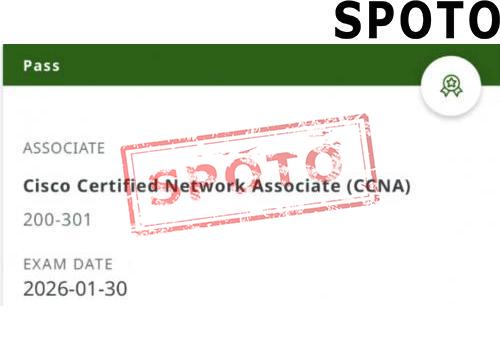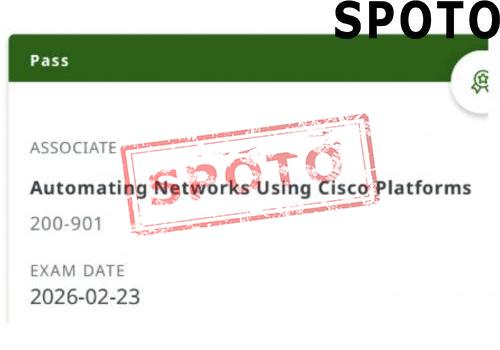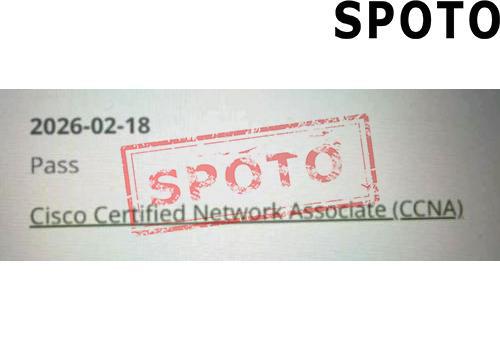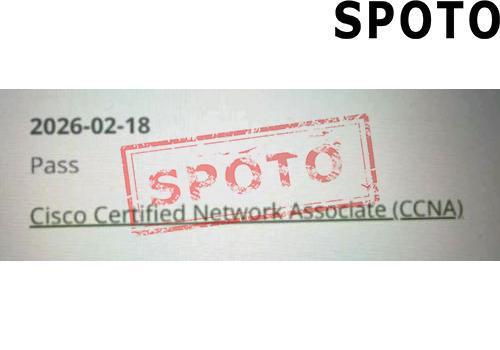
Table of Contents
Ⅰ. Deciphering Network Security
In an era dominated by interconnected digital landscapes, the significance of Network Security has become paramount. As technology continues to advance, the seamless exchange of information across networks has become an integral part of our daily lives. However, with this increased connectivity comes the inevitable threat of cyberattacks and unauthorized access. Network Security, therefore, plays a pivotal role in safeguarding the integrity, confidentiality, and availability of data within these expansive networks.
As organizations worldwide grapple with the escalating challenges posed by cyber threats, the demand for skilled Network Security Professionals has witnessed a remarkable surge. The escalating sophistication of cyberattacks necessitates a workforce equipped with the knowledge and expertise to fortify digital infrastructures. From protecting sensitive information to ensuring the continuous functionality of critical systems, the role of Network Security Professionals has evolved into an indispensable component of contemporary technology ecosystems.
The accelerating demand for Network Security Professionals reflects the imperative for proactive measures to mitigate the evolving cyber threats that have the potential to compromise the very fabric of our interconnected world. As businesses and individuals alike recognize the inherent risks, the call for skilled professionals in the field of Network Security has never been more pressing. The landscape is ripe with opportunities for those who possess the skills and dedication to navigate the dynamic and challenging realm of Network Security.
Ⅱ. Premier Network Security Certifications Unveiled
In the dynamic realm of Network Security, certifications serve as a cornerstone, validating the expertise and proficiency of professionals in safeguarding digital ecosystems. Among the myriad of certifications available, five stand out as paragons of excellence, each catering to specific facets of network security:
1. Cisco Certified CyberOps Associate (CBROPS)
Cisco's CBROPS certification is designed for professionals aspiring to specialize in cybersecurity operations. It covers the essentials of security monitoring, intrusion analysis, incident response, and event correlation, making it an ideal choice for those looking to fortify their skills in identifying and mitigating cyber threats.
2. CompTIA Security+ (SY0-601)
Regarded as a foundational certification, CompTIA Security+ is vendor-neutral and recognized globally. It addresses core security concepts, risk management, cryptography, and network security technologies. Ideal for entry-level professionals, it provides a comprehensive understanding of the principles essential for securing networks and systems.
3. Palo Alto Networks Certified Network Security Engineer (PCNSE)
Tailored for those working with Palo Alto Networks technologies, the PCNSE certification validates proficiency in deploying, configuring, and managing Palo Alto Networks solutions. This certification is instrumental in showcasing expertise in next-generation security technologies and protecting networks against advanced threats.
4. Microsoft Certified: Azure Security Engineer Associate
As cloud computing continues to shape the digital landscape, the Azure Security Engineer certification from Microsoft focuses on securing Microsoft Azure environments. Covering topics such as identity and access management, virtual network security, and threat protection, this certification is essential for professionals safeguarding cloud-based infrastructures.
5. Juniper Networks Certified Specialist Security (JNCIS-SEC)
Juniper's JNCIS-SEC certification is tailored for individuals specializing in Junos software for security platforms. It encompasses topics like security policies, firewall filters, VPNs, and intrusion prevention systems. This certification is pivotal for professionals seeking expertise in securing Juniper-based networks.
These certifications not only validate the skills and knowledge of network security professionals but also serve as benchmarks in an ever-evolving landscape, ensuring that certified individuals are equipped to tackle the intricate challenges of safeguarding digital environments. As technology advances, these certifications provide a roadmap for staying abreast of the latest security trends and methodologies.
Ⅲ. Advantages of Network Security Certifications
Embarking on the journey to obtain network security certifications offers a multitude of benefits, serving as a strategic investment for professionals seeking to advance their careers in the dynamic and challenging field of cybersecurity. Here are some compelling advantages associated with acquiring popular network security certifications:
1. Industry Recognition and Credibility
Network security certifications from reputable organizations such as Cisco, CompTIA, Palo Alto Networks, Microsoft, and Juniper carry significant weight in the industry. These certifications serve as a testament to the holder's expertise and commitment to maintaining the highest standards in network security.
2. Enhanced Job Opportunities
In a competitive job market, employers often prioritize candidates with recognized certifications. Holding certifications such as Cisco's CBROPS or CompTIA Security+ can open doors to a wide array of job opportunities, ranging from entry-level positions to specialized roles in cybersecurity.
3. Validation of Skills and Knowledge
Network security certifications are designed to rigorously test and validate a professional's skills and knowledge in specific areas of cybersecurity. Achieving certification demonstrates a comprehensive understanding of essential concepts, tools, and technologies, providing employers with confidence in the capabilities of certified individuals.
4. Career Advancement and Specialization
Certifications allow professionals to specialize in niche areas of network security. For instance, the Palo Alto Networks Certified Network Security Engineer (PCNSE) certification enables specialization in deploying and managing Palo Alto Networks solutions. This specialization enhances career prospects and positions individuals for roles requiring expertise in specific security technologies.
5. Stay Current with Evolving Threat Landscape
The field of network security is dynamic, with new threats emerging regularly. Network security certifications often require ongoing education and recertification, ensuring that certified professionals stay abreast of the latest security trends and technologies. This commitment to continuous learning is invaluable in a field where staying current is crucial.
6. Global Recognition and Portability
Many network security certifications are globally recognized, providing professionals with opportunities to work internationally. The portability of these certifications allows individuals to showcase their expertise and credentials across diverse organizations and industries, enhancing their global employability.
In conclusion, network security certifications not only validate skills and knowledge but also empower professionals to thrive in an ever-evolving cybersecurity landscape. The benefits extend beyond personal growth, influencing career trajectories, job opportunities, and the capacity to contribute effectively to the ongoing battle against cyber threats. As organizations prioritize the security of their digital assets, certified professionals stand out as indispensable guardians of the digital realm.
Ⅳ. Conquering Network Security Certificate Challenges
Embarking on the journey to secure network security certifications is akin to navigating a challenging and dynamic landscape, where the pursuit of expertise is met with a series of formidable hurdles. These certifications, offered by renowned institutions such as Cisco, CompTIA, Palo Alto Networks, Microsoft, and Juniper, bring with them a set of difficulties that not only test the intellectual mettle of aspiring professionals but also underscore the rigorous standards set by the industry. As we delve into the intricacies of obtaining these certifications, it becomes apparent that the path to certification is a gauntlet of comprehensive knowledge, dynamic adaptability, and the practical application of skills in real-world scenarios. Let us explore these challenges and understand how they contribute to the value and credibility of network security certifications.
1. Comprehensive Knowledge Base
Network security certifications often require a comprehensive understanding of a broad range of topics, spanning foundational principles to advanced and specialized areas. The depth of technical knowledge required can be challenging, demanding a thorough mastery of intricate details related to security protocols and technologies.
2. Dynamic Nature of Cybersecurity
The ever-evolving landscape of cybersecurity introduces an additional layer of complexity. Continuous adaptation to emerging threats and staying abreast of the latest trends and technologies demands ongoing self-directed learning and a commitment to remaining current with industry best practices.
3. Practical Application
Many certification exams include hands-on components that assess a candidate's ability to apply theoretical knowledge in real-world scenarios. This practical aspect adds complexity, requiring individuals not only to understand concepts theoretically but also to demonstrate proficiency in executing them effectively.
4. Time Management
Balancing certification preparation with demanding work schedules and personal commitments can be a significant challenge. Effectively managing time to dedicate sufficient focus and effort to certification studies requires discipline and strategic planning.
5. Workplace and Personal Commitments
Aspiring professionals often need to navigate the demands of their current job roles and personal responsibilities while preparing for certifications. Juggling these commitments alongside the rigorous study requirements can be demanding and requires effective time management.
6. Rigorous Exam Processes
Certification exams themselves are designed to be challenging, incorporating rigorous processes to ensure that candidates possess not only theoretical knowledge but also the practical skills needed to excel in the field. The exam structure often involves scenarios that mimic real-world challenges.
7.Continuous Learning Requirements
The necessity for continuous learning is inherent in the field of network security. Professionals must stay vigilant to new threats and technologies, making ongoing education a perpetual aspect of maintaining certification relevance and effectiveness.
8. Technical Complexity
The technical complexity of network security concepts and technologies can be daunting. Understanding and navigating complex protocols, encryption methods, and security architectures require a high level of technical proficiency.
Ⅴ. SPOTO: Your Path to Network Security Success
In the complex world of network security certifications, choosing the right training institution is crucial. Among the many options available, SPOTO stands out as a reliable and experienced choice, with decades of commitment to the network certification industry. Having contributed to tens of thousands of IT talents, SPOTO has established itself as a trustworthy partner for those navigating the challenges of certification pursuits.
What sets SPOTO apart is not only its long-standing presence in the industry but also its comprehensive approach to professional development. Beyond offering exam dumps and training, SPOTO provides a complete package designed to guide individuals through the intricate world of certification choices. Recognizing that certification journeys involve more than just passing exams, SPOTO ensures a tailored approach that aligns qualifications and experiences with the most suitable certificates.
One standout feature of SPOTO is its team of experienced instructors deeply embedded in the IT industry. These professionals not only possess the knowledge needed for a 100% pass rate but also offer valuable insights into the ever-evolving industry landscape. Going beyond exam preparation, SPOTO supports candidates in refining their resumes and provides strategic career guidance.
SPOTO's approach goes beyond the typical training institution model; it serves as a trusted partner in shaping individuals' career trajectories. The institution's commitment to recommending certificates based on candidates' qualifications and past experiences reflects a personalized approach, steering away from the one-size-fits-all mentality.
In the face of numerous challenges and choices, SPOTO acts as a reliable guide, helping individuals find the most suitable certifications for their ideal careers. With a proven track record and comprehensive support, SPOTO not only prepares individuals for certification exams but also empowers them to embark on a journey toward professional excellence with confidence.











